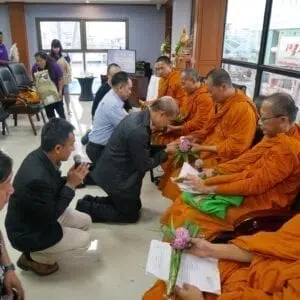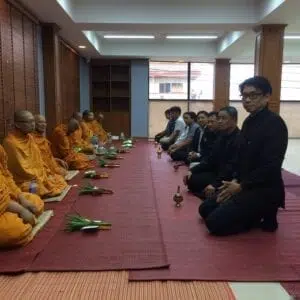What is Estate Planning?
Estate planning is a process of anticipating and arranging the disposal of an estate and managing an individual’s asset base in the event of their incapacitation or death. As part of an estate planning, drafting a Last Will and Testament is recommended.
What is a Thailand Last Will and Testament?
A Last Will and Testament is a declaration of intention by will, concerning dispositions as to your assets or other matters which shall take effect according to law after your demise. The document will detail your assets in Thailand, such as property, bank accounts, vehicle, and personal valuable items, designating who shall inherit and control them according to your wish to prevent unnecessary complications and quarrels between family members.
Other than assets, what does a Last Will and Testament cover?
Your Last Will and Testament shall cover five important points:
1. Appointing an Executor or the person who will be in charge of settling and ensuring that your beneficiaries will receive their inheritance
2. Naming all the beneficiaries of your assets
3. Procedure on how the assets shall be transferred to your beneficiaries
4. How funeral must be arranged
What should I consider when selecting an executor for my will?
Overall, the executor will administer your estate and make sure that everything is according to the terms of your will. Appointing a trusted executor is an important decision that needs thorough consideration. The responsibilities of an executor include making sure all assets are accounted for, all existing debts and tax obligations are paid, and that remaining assets are distributed to the correct beneficiaries in accordance to your will.
Conflict of interest can be avoided by selecting an executor who is not a beneficiary or a business partner. Most individuals tend to choose family members or other close friends or relatives to act as an executor; it is important that it is someone you can completely trust. Appointing someone as executor does not mean that the chosen individual must do everything themselves. Executors may hire others to help with various aspects of the process. If you don’t have a friend or family member with the necessary expertise, consider hiring a lawyer, accountant or similar type of professional to act as your executor.
What happens to my assets in Thailand if I don’t have a Last Will and Testament?
In Thailand, when a person dies without a Last Will and Testament, the intestate’s assets must be distributed in accordance with the law. As stipulated in The Civil and Commercial Code Section 1629, there are six classes of statutory heirs in Thailand.
Each class is entitled to inherit in the following order:
1. descendants
2. parents
3. brothers and sisters of full blood
4. brothers and sisters of half blood
5. grandfathers and grandmothers
6. uncles and aunts
The right of a surviving spouse to share in the estate of a deceased spouse arises automatically from marital status. Spouses who are under separation do not lose the right of inheritance to one another as long as divorce between them has not been granted according to law. Ordinances awarding such rights on a surviving spouse make the spouse a statutory heir. Before any distribution of the estate to the relatives, half of the estate (Sin Somros) will belong to the spouse, if any, and the rest will be distributed accordingly.
How do I make a valid Thai Will?
A testator must be competent and at least 15 years of age. You can make a will in any of the following forms:
• In Writing
It must be dated at the time of making the will, and signed by the testator before at least two witnesses present. The witnesses shall sign their names certifying the signature of the testator;
• By Holograph Document
The testator must write with his own hand the entire text of the document, the date and his signature.
• By Public Document
The testator must declare to a District Officer before at least two witnesses what dispositions he wishes to include in his will. The District Officer must note down such declarations and read it to both the testator and witnesses, all affixing their signatures after making sure that the statement written down corresponds with the declaration of the testator.
• Secret Document
The testator must sign his name on the document, close the document and sign across the place of closure. He must present the document to a District Official with at least 2 witnesses and declare to them that it contains his testamentary dispositions.
It’s very important to observe the correct legal formalities when signing, amending, or revoking your Will. If you fail to follow all of the specific formalities, then your Last Will won’t be legally valid.
I already have my last will and testament in my home country; do I need a different will for my assets in Thailand?
Different jurisdictions usually require different formalities for the wills. Having a will drafted in your home country to cover all your assets in Thailand may be troublesome to your family, especially in the event that the will might be invalid in Thailand courts should it not conform to the Thai law requirements. We recommend that you prepare and sign a Thai Will on Thai territory to ensure that Thai rules regarding the form of your will apply.







